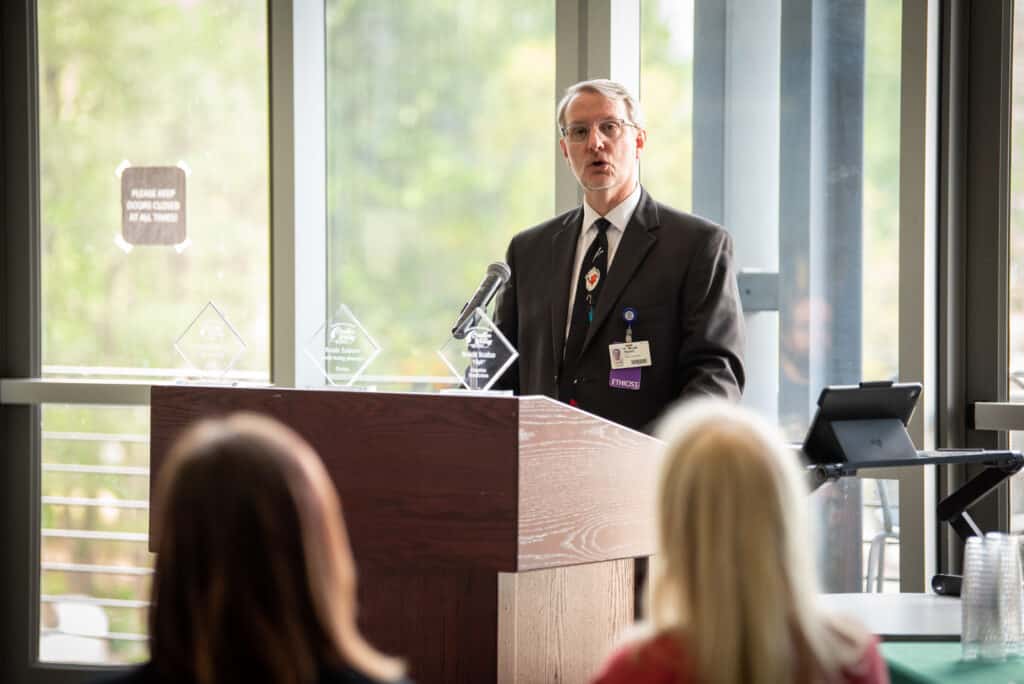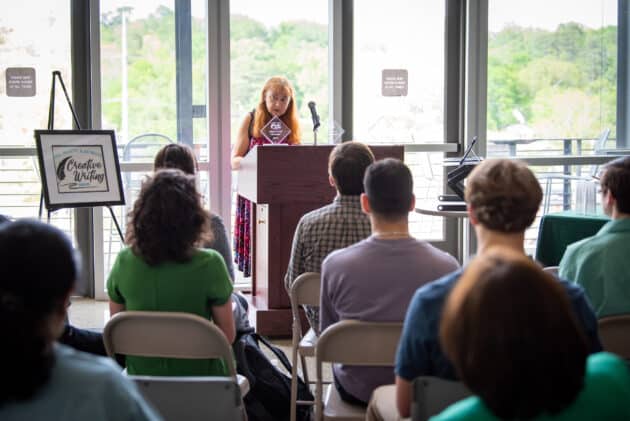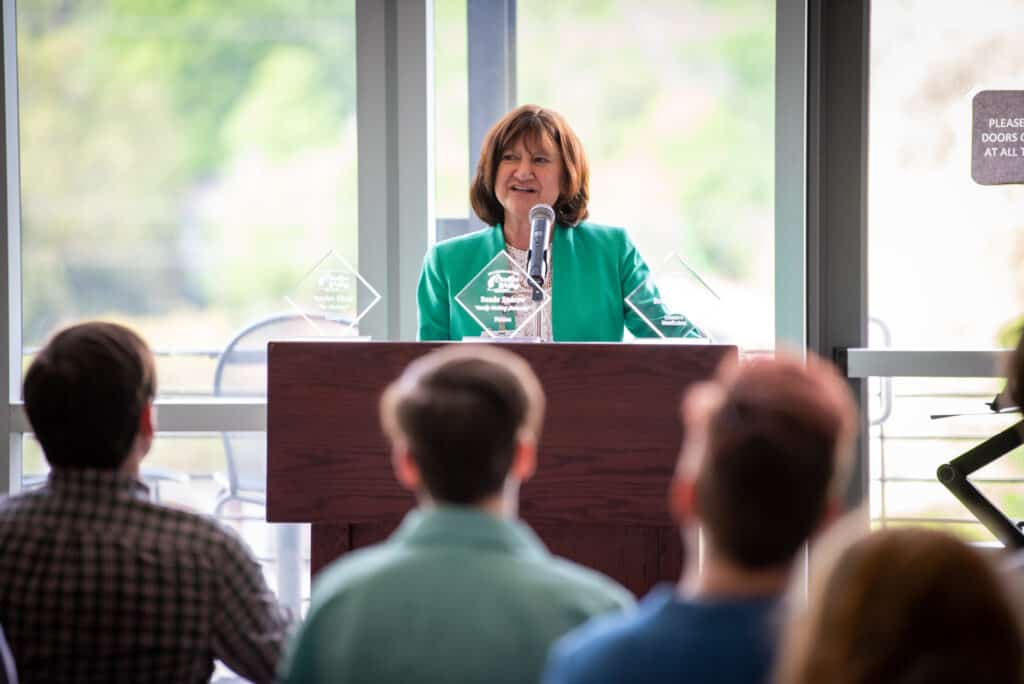Hello, I’m Micah Hester, Chair of the College of Medicine’s Department of Medical Humanities & Bioethics, and as my department coordinates the award process we are celebrating today, I have the honor of welcoming you all to the Third Annual Ceremony for the Drs. Paulette and Jay Mehta Awards in Creative Writing. We are very glad to see all you here, and others online, to celebrate our colleagues whose creative efforts are to be honored today.

The Mehta Award arose from the generous endowment by the Drs. Mehta, both long-standing members of the UAMS faculty, Paulette in Hem/Onc and Jay in Cardiology. Both are outstanding clinicians who are moved to care deeply for their patients, in part because they care deeply about all aspects of the human condition. The Mehtas have long supported education, literature, creativity, and the community, and this award is but one example of how their interests have been manifested for the benefit of UAMS.
As with previous years, a call for entries went out during the fall of this academic year, and over 50 entries (divided into categories of poetry, creative non-fiction, and fiction) were submitted by a members of the UAMS community, members who represented several of our colleges, the med center, from students, staff, and faculty. A five-person review committee reviewed every entry. I would like to acknowledge their important efforts here: Holly Taylor in Quality Management, Lauren Bunch in the College of Medicine and the Department of Medical Humanities & Bioethics, and Angela Scott in the College of Medicine and the Department of Pediatrics. Further, we asked for expert help from outside UAMS, and Casey Kayser, associate professor at UA-Fayetteville’s English Department and Eliz Borne of the Central Arkansas Library System agreed to serve. Entries are submitted by email and then blinded for review. After several iterations of reading through the marvelous entries, the committee came to light upon one winner in each of the three literary categories. A little later we will have the good fortune of hearing experts from each of the winning entries, but right now, it is left for me to thank the many people who helped make this award possible from the review committee members to the Office of Institutional Advancement—and, of course, the Mehtas themselves.
The importance of creativity, critical thinking, crafting narratives, and artful approaches to health care should not be undervalued. Science makes no difference to the human race if it pays no attention to the human condition, and the humanities and arts are the disciplines in our academic and personal lives that provide the perspectives necessary to connect individuals with one another. To highlight the importance of the relationship of the humanities to our work at UAMS, we have invited our Provost, Stephanie Gardner, to say a few words. Dr. Gardner…
Thank, you Dr. Gardner. Again, these Awards are named for the two people who generously funded the endowment that will help fund these Awards now and into the future. I would, thus, like to invite Drs. Paulette & Jay Mehta to say a few words to us about their interests in providing this marvelous opportunity for UAMS.
Thank you so much, Paulette and Jay. Before turning to our informal time to eat and talk with one another, we want to highlight the wonderful work of the Award winners. Top prizes were awarded in poetry, fiction, and creative nonfiction (and several other pieces were identified for honorable mention). The awards include a trophy and cash prize, and the winners are with us today. I shall introduce them each, in turn, and they have agreed to say a few words and read excerpts from their work, and their entire pieces will soon be published in UAMS’s own online literary journal, Medicine & Meaning.
The top prize in poetry was awarded to Haylee Shull (from Northwest Arkansas) for her piece, “The Orchard.” Haylee, congratulations.
Thank you. Top prize in fiction goes to, “Hardly Working (Remotely),” by Reade Zodrow, who is also from Northwest. Reade, well done.
Finally, top prize in creative nonfiction is by Brook Scalzo in the College of Nursing for her work “Cleft.” Brook, congratulations.
Thank you, and thank you all for coming to today’s ceremony. The Mehta Award will be given out each year, and there seems no lack of brilliant creative writing here at UAMS. So, please, look for the announcement next fall requesting entries. Now, please, enjoy the reception.
Micah Hester, Ph.D., is the chair of the Department of Medical Humanities and Bioethics in the College of Medicine at UAMS.


